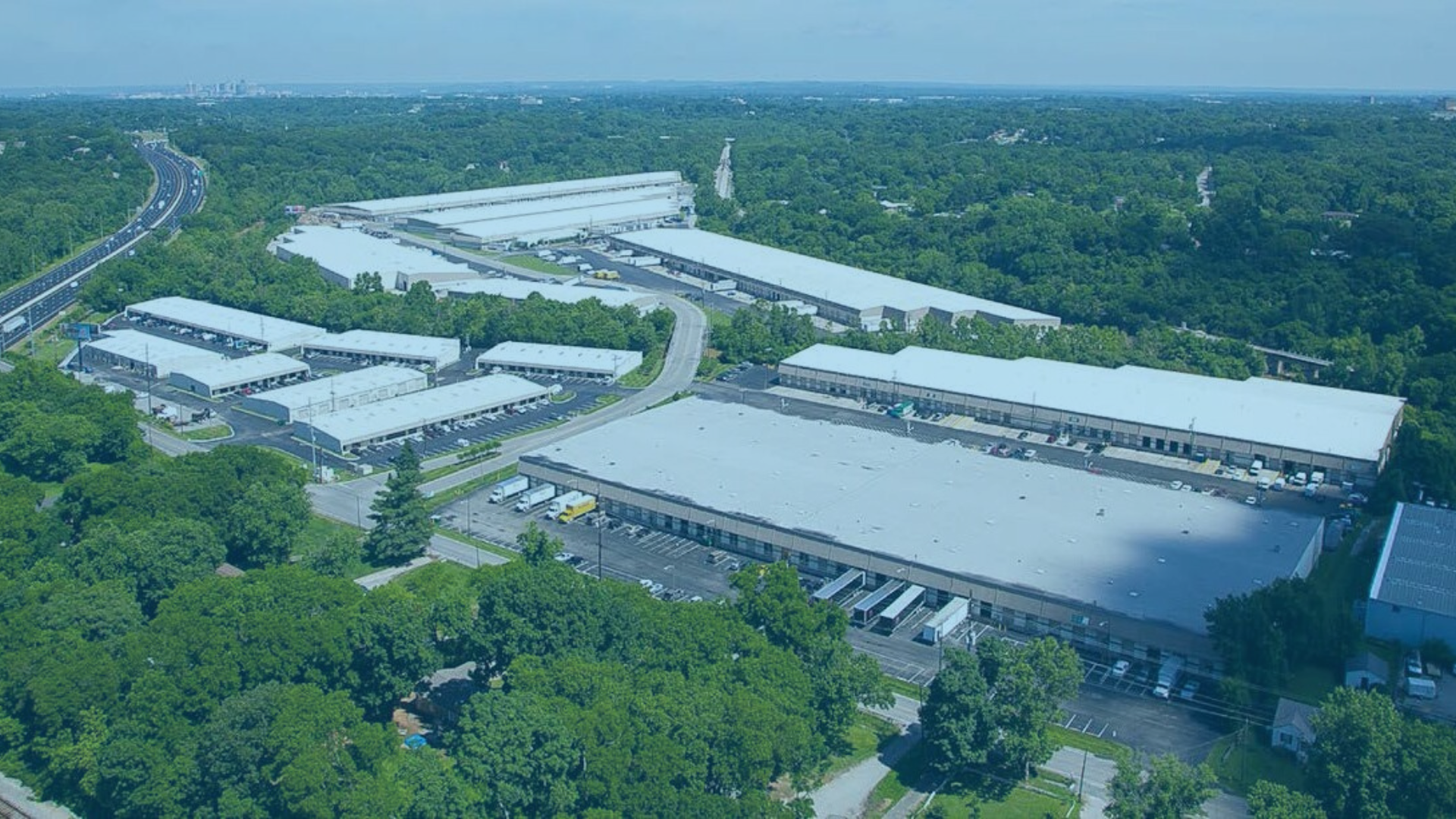Five Reasons you should forget residential investing
If you're serious about real estate investing, it's time to look beyond those quaint single-family homes.
Bold statement? Absolutely. But stick with me here.
Now, don't get me wrong. Investing in a single-family home beats twiddling your thumbs on the sidelines of the real estate game. And yes, I'll even go out on a limb and say that residential real estate still outshines many other investment vehicles out there.
But that's not why we're here today, is it?
I'm about to lay out five reasons why commercial real estate should be your go-to play.
I can almost hear you thinking, "But wait! Residential is cheaper to get into and way less intimidating!" You're not wrong. The barrier to entry is lower, and over 65% of Americans will own a home at some point. It's familiar territory. Save up, buy that dream home, live in it for years, then maybe rent it out when you upgrade. Sounds simple, right?
Here's the kicker, though: Residential real estate is essentially a glorified piggy bank.
Commercial real estate, on the other hand? It's a whole different ballgame. We're talking about a more diversified, balanced, and scalable approach to building your real estate empire. If you're aiming for a portfolio of passive investments that actually move the needle, commercial real estate is your ticket.
And here's the beauty of it - there's no one-size-fits-all approach. The paths to becoming a passive commercial real estate investor are as varied as the properties themselves.
So, buckle up. Here are five compelling reasons why you should kick residential investing to the curb and set your sights on the commercial real estate horizon.
Higher Quality Tenants
One of the most compelling reasons to invest in commercial real estate over residential properties is the superior quality of tenants you're likely to encounter. While residential properties can certainly attract responsible individuals, commercial real estate offers a level of tenant quality that's hard to match. Let's delve into why businesses make for superior tenants and how this can significantly impact your investment.
The Business Advantage: More Than Just a Tenant
When you lease a commercial property, you're not just renting to an individual; you're partnering with a business. This distinction carries several significant advantages:
Enhanced Financial Stability: Businesses, especially established ones, often have more substantial financial resources than individual renters. This translates to:
More consistent rent payments
Ability to weather economic fluctuations
Potential for longer-term leases
Superior Credit Profiles: Many commercial tenants are regional or national companies with established credit histories. This provides:
Easier assessment of financial reliability
Reduced risk of default
Potential for higher-value, longer-term leases
Stronger Lease Guarantees: Commercial leases often come with additional safeguards:
Personal guarantees from business partners
Corporate guarantees from parent companies
Cross-collateralization with other business assets
These factors combine to create a much stronger safety net for property owners, significantly reducing the risk of income loss due to tenant default.
Property Maintenance: A Shared Interest
Commercial tenants have a vested interest in maintaining the quality of their rented space:
Image is Everything: For many businesses, their physical location is an extension of their brand. This means:
Greater motivation to keep the property in excellent condition
Willingness to invest in improvements or upgrades
Proactive approach to maintenance issues
Client-Facing Spaces: Businesses that host clients or customers on-site have an extra incentive to maintain a professional, well-kept environment.
Operational Necessity: Well-maintained premises are often crucial for smooth business operations, encouraging tenants to take good care of the property.
This alignment of interests between landlord and tenant often results in better-maintained properties with potentially lower long-term maintenance costs for the owner.
Flexibility in Tenant Selection: A Legal Advantage
One of the less-discussed but significant advantages of commercial real estate investment is the greater flexibility in tenant selection:
Freedom from Fair Housing Restrictions: Unlike residential real estate, commercial properties are not governed by the Fair Housing Act. This means:
More latitude in selecting tenants based on business-related criteria
Reduced risk of discrimination claims
Ability to curate a tenant mix that aligns with your investment strategy
Comprehensive Vetting Process: Commercial landlords can request a wide range of financial information from potential tenants, including:
Tax returns
Personal and business financial statements
Bank statements
Profit & loss reports
Balance sheets
Business plans and projections
This level of scrutiny allows for a much more thorough assessment of a tenant's suitability and financial stability.
Discretion in Leasing Decisions: If a potential tenant doesn't meet your criteria, you have the freedom to decline their application without fear of legal repercussions (assuming you're not discriminating based on protected characteristics unrelated to the business).
Long-Term Relationships and Stability
Commercial tenants often offer the potential for longer-term, more stable relationships:
Extended Lease Terms: While residential leases typically run for a year, commercial leases can span 5, 10, or even 20 years. Benefits include:
Reduced turnover costs
More predictable long-term income
Potential for built-in rent escalations
Business Growth Opportunities: As your tenants' businesses grow, they may:
Expand into additional space within your property
Upgrade to larger properties within your portfolio
Provide referrals to other businesses in their network
Professional Relationships: Dealing with businesses often means interacting with professional management teams, leading to:
More streamlined communication
Efficient problem-solving
Potential for mutually beneficial long-term partnerships
By fostering these long-term relationships, commercial real estate investors can create a stable, growing portfolio with reduced management headaches.
In conclusion, the superior quality of tenants in commercial real estate presents a compelling argument for choosing this investment path over residential properties. From enhanced financial stability and stronger lease guarantees to aligned interests in property maintenance and the flexibility to select ideal tenants, commercial real estate offers unique advantages that can lead to more stable, profitable, and manageable investments in the long run.
2. Fewer Expenses as a landlord
One of the most compelling advantages of investing in commercial real estate over residential properties is the potential for significantly reduced landlord expenses. This aspect of commercial real estate can dramatically improve your bottom line and simplify your role as a property owner. Let's delve into the details of how commercial real estate can lead to fewer expenses for landlords.
The Residential Burden: A Contrast
In residential real estate, landlords typically bear the brunt of property-related expenses:
Property Taxes: Generally paid entirely by the landlord
Insurance: Building insurance is usually the landlord's responsibility
Maintenance: From routine upkeep to major repairs, these costs often fall to the property owner
Utilities: In many cases, landlords cover some or all utilities, especially in multi-family properties
This expense structure can significantly eat into your rental income, reducing overall returns on your investment.
The Commercial Advantage: Shifting the Expense Burden
In commercial real estate, the expense structure is often vastly different, typically favoring the landlord. This is primarily due to the prevalence of "net" lease structures.
Understanding Net Leases
Net leases are a cornerstone of commercial real estate, allowing landlords to pass many expenses on to tenants. There are several types of net leases:
Single Net Lease (N): Tenant pays rent plus property taxes
Double Net Lease (NN): Tenant pays rent plus property taxes and insurance
Triple Net Lease (NNN): Tenant pays rent plus property taxes, insurance, and maintenance
The Triple Net (NNN) Lease: A Landlord's Dream
The Triple Net lease is particularly advantageous for commercial real estate investors:
Comprehensive Expense Coverage:
Property Taxes: Paid by the tenant
Insurance: Covered by the tenant
Maintenance: Tenant's responsibility
Utilities: Typically paid by the tenant
Predictable Income: With most expenses covered by the tenant, your rental income is largely net profit, making financial planning more straightforward.
Reduced Management Burden: Tenants handling maintenance means less day-to-day involvement for landlords.
Long-Term Leases: NNN leases are often associated with longer lease terms, providing stable income for extended periods.
Beyond Triple Net: The Absolute Net Lease
Some commercial properties, particularly those leased to large corporations, may have an even more landlord-friendly structure:
Absolute Net Lease:
Includes all Triple Net provisions
Tenant also responsible for structural maintenance (roof, foundation, etc.)
Examples: Often used by companies like Starbucks, Walgreens, or McDonald's
Allows tenants to maintain brand consistency across locations
Virtually eliminates all property-related expenses for the landlord
The Financial Impact: A Comparative Example
To illustrate the difference, let's consider a hypothetical scenario:
Residential Property:
Monthly Rent: $2,000
Annual Income: $24,000
Annual Expenses (taxes, insurance, maintenance): $8,000
Net Annual Income: $16,000
Commercial Property (with NNN Lease):
Monthly Rent: $5,000
Annual Income: $60,000
Annual Expenses: Minimal (perhaps some administrative costs)
Net Annual Income: Nearly $60,000
This simplified example demonstrates how the net lease structure can significantly boost your returns in commercial real estate.
Considerations and Caveats
While the expense structure in commercial real estate is generally favorable for landlords, it's important to note:
Market Dynamics: In some markets or during economic downturns, landlords may need to offer more favorable terms to attract tenants.
Property Type Variations: Not all commercial properties use net leases. Office and some industrial properties might use gross leases, where the landlord covers more expenses.
Larger Initial Investment: Commercial properties often require a larger upfront investment, which should be factored into your overall financial analysis.
Importance of Tenant Quality: With tenants responsible for so many expenses, their financial stability becomes even more critical.
Conclusion: A Win for Commercial Real Estate Investors
The ability to shift many property-related expenses to tenants is indeed a significant win for commercial real estate investors. This structure not only improves net income but also simplifies property management and reduces financial uncertainty.
By drastically reducing ongoing expenses, commercial real estate allows investors to:
Enjoy higher net returns on their investments
Focus on property acquisition and portfolio growth rather than day-to-day management
Plan for the long term with more predictable income streams
When considering the investment potential of commercial versus residential real estate, the advantageous expense structure of commercial properties stands out as a compelling reason to lean towards commercial investments. It's a key factor that can significantly enhance your real estate investment strategy and long-term financial success.
3. Forced Appreciation
One of the most compelling reasons to invest in commercial real estate over residential properties is the concept of forced appreciation. This powerful mechanism allows investors to directly influence and increase the value of their properties, offering a level of control that is largely absent in residential real estate. Let's delve into how forced appreciation works and why it's a game-changer for commercial real estate investors.
Understanding Property Valuation: Commercial vs. Residential
To grasp the power of forced appreciation, it's crucial to understand how property values are determined in both residential and commercial real estate:
Residential Real Estate Valuation
Comparable Sales Approach:
Primary method for valuing residential properties
Based on recent sales of similar properties in the area
Factors include location, size, condition, and amenities
Limited Control:
Individual owners have minimal influence on overall market trends
Improvements may increase value, but impact is often limited
Market-Dependent Growth:
Appreciation largely depends on broader market conditions
Historical average annual appreciation: 3-5%
Commercial Real Estate Valuation
Income Approach:
Primary method for valuing commercial properties
Based on the property's Net Operating Income (NOI)
Uses capitalization rate (cap rate) to determine value
Direct Correlation to Cash Flow:
Property value = NOI / Cap Rate
Increasing NOI directly increases property value
Investor-Driven Growth:
Savvy investors can significantly influence property value through strategic management
The Power of Forced Appreciation in Commercial Real Estate
Forced appreciation refers to actions taken by the property owner to increase the value of the asset. In commercial real estate, this often involves strategies to boost the property's Net Operating Income.
Strategies for Forcing Appreciation
Increasing Rental Income:
Raising rents to market rates
Adding additional leasable space
Implementing percentage rent clauses in retail leases
Reducing Operating Expenses:
Implementing energy-efficient systems
Renegotiating service contracts
Challenging property tax assessments
Improving Property Quality and Appeal:
Renovating common areas
Upgrading building systems
Enhancing curb appeal
Optimizing Tenant Mix:
Attracting high-quality, complementary tenants
Creating synergies between tenants to drive foot traffic
Restructuring Leases:
Converting gross leases to net leases
Negotiating longer lease terms with built-in rent escalations
The Math Behind Forced Appreciation
To illustrate the power of forced appreciation, let's consider an example:
Initial Property Scenario:
Net Operating Income (NOI): $500,000
Capitalization Rate: 7%
Property Value: $7,142,857 ($500,000 / 0.07)
Now, let's say the investor implements strategies to increase NOI by 20%:
Improved Property Scenario:
New NOI: $600,000 (20% increase)
Capitalization Rate: 7% (unchanged)
New Property Value: $8,571,429 ($600,000 / 0.07)
In this scenario, a 20% increase in NOI resulted in a $1,428,572 increase in property value - a 20% appreciation.
Comparing Growth Potential: Commercial vs. Residential
The ability to force appreciation gives commercial real estate a significant advantage over residential investments:
Speed of Value Increase:
Commercial: Can see substantial increases in short periods through strategic management
Residential: Typically relies on gradual market appreciation
Magnitude of Value Increase:
Commercial: Potential for double-digit percentage increases through forced appreciation
Residential: Often limited to single-digit annual appreciation rates
Investor Control:
Commercial: High degree of control over property value through management decisions
Residential: Limited control, heavily dependent on market conditions
Leveraging Forced Appreciation for Portfolio Growth
Savvy commercial real estate investors can use forced appreciation to rapidly scale their portfolios:
Value-Add Opportunities:
Identifying underperforming properties with potential for improvement
Implementing strategies to increase NOI and property value
Refinancing or selling the improved property to reinvest in new opportunities
Snowball Effect:
Using increased property values to access more capital
Reinvesting gains into larger or multiple properties
Accelerating wealth accumulation through strategic property management
Conclusion: The Transformative Power of Forced Appreciation
Forced appreciation stands out as a compelling reason to choose commercial real estate over residential investments. It offers:
Greater control over investment returns
Potential for rapid value increases
A direct path to building significant wealth through real estate
While residential real estate can certainly be a solid investment, the ability to actively drive appreciation in commercial properties provides a unique advantage. For investors seeking to maximize their returns and take a more active role in growing their real estate portfolio, commercial real estate's potential for forced appreciation makes it an extremely attractive option.
By understanding and leveraging the principles of forced appreciation, investors can transform underperforming properties into high-value assets, creating wealth at a pace that's often unattainable in the residential market. This powerful tool, unique to commercial real estate, exemplifies why many sophisticated investors prefer commercial properties for building long-term wealth.
4. better returns
When it comes to investment returns, commercial real estate often outshines its residential counterpart and many other investment vehicles. While it's true that commercial real estate can carry higher risks, it also offers the potential for substantially higher rewards. Let's delve into why commercial real estate can provide better returns and how it compares to other investment options.
Understanding the Risk-Return Tradeoff
The fundamental principle of "higher risk, higher reward" is particularly applicable in real estate investing:
Risk Factors in Commercial Real Estate:
Larger initial capital requirements
More complex management needs
Greater sensitivity to economic cycles
Potential for longer vacancy periods
Reward Potential:
Higher cash flow
Greater appreciation potential
Tax benefits
Ability to force appreciation (as discussed in previous sections)
Comparing Returns: Commercial vs. Residential Real Estate
Commercial real estate typically offers superior returns compared to residential investments:
1. Cash Flow
Commercial Properties:
Often generate higher monthly income
Net Operating Income (NOI) margins can range from 50-80% of gross income
Example: A $1,000,000 commercial property might generate $80,000-$120,000 annual NOI
Residential Properties:
Generally lower monthly income
NOI margins typically range from 30-60% of gross income
Example: A $1,000,000 residential property might generate $30,000-$60,000 annual NOI
2. Appreciation
Commercial Properties:
Potential for forced appreciation through active management
Value directly tied to income, allowing for rapid value increases
Historical average annual appreciation: 4-6% (with potential for much higher through forced appreciation)
Residential Properties:
Primarily dependent on market conditions
Limited ability to force appreciation
Historical average annual appreciation: 3-5%
3. Lease Terms
Commercial Leases:
Typically longer (3-10 years or more)
Often include rent escalation clauses
Result: More stable, predictable income with built-in growth
Residential Leases:
Usually short-term (1 year or month-to-month)
Limited rent increase opportunities
Result: More frequent turnover, less predictable long-term income
Commercial Real Estate vs. Other Investment Options
To truly appreciate the return potential of commercial real estate, it's helpful to compare it to other popular investment vehicles:
1. Stock Market
Average Annual Return: Approximately 10% (S&P 500 historical average)
Pros: High liquidity, low entry barrier
Cons: High volatility, no control over performance
2. Bonds
Average Annual Return: 5-6% for corporate bonds, lower for government bonds
Pros: Lower risk, steady income
Cons: Lower returns, sensitive to interest rate changes
3. Residential Real Estate
Average Annual Return: 7-10% (including appreciation and cash flow)
Pros: Familiar asset class, potential for steady appreciation
Cons: Lower cash flow, more hands-on management
4. REITs (Real Estate Investment Trusts)
Average Annual Return: 12.99% (according to MSCI U.S. REIT Index)
Pros: High liquidity, professional management, diversification
Cons: Less control, potential for higher volatility
5. Commercial Real Estate (Direct Investment)
Average Annual Return: 15-20% or more (including cash flow and appreciation)
Pros: High return potential, control over asset, tax benefits
Cons: Higher initial investment, more complex management
Factors Contributing to Higher Returns in Commercial Real Estate
Several factors contribute to the superior return potential in commercial real estate:
Higher Rental Income: Businesses can typically afford higher rents than individual residential tenants.
Triple Net (NNN) Leases: Common in commercial real estate, these leases pass property expenses to tenants, increasing net income for owners.
Forced Appreciation: As discussed earlier, owners can actively increase property value by improving NOI.
Economies of Scale: Larger properties can often be operated more efficiently on a per-square-foot basis.
Professional Tenants: Businesses often make more reliable tenants, leading to more stable income.
Leverage: Commercial properties can often support higher leverage, amplifying returns on equity.
Case Study: Comparing Investment Returns
Let's consider a hypothetical $1,000,000 investment across different asset classes:
Stock Market Investment:
Annual Return: 10%
After 10 years: $2,593,742
Residential Real Estate:
Annual Return: 8% (4% cash flow, 4% appreciation)
After 10 years: $2,158,925
Commercial Real Estate:
Annual Return: 15% (8% cash flow, 7% appreciation)
After 10 years: $4,045,558
This simplified example illustrates the potential for commercial real estate to significantly outperform other investment options over time.
Conclusion: The Commercial Real Estate Advantage
While commercial real estate does come with higher risks and requires more expertise to manage effectively, it offers the potential for substantially higher returns compared to residential real estate and many other investment options. The combination of strong cash flow, appreciation potential, and the ability to actively increase value makes commercial real estate an attractive option for investors seeking superior returns.
Key takeaways:
Commercial real estate offers potential for higher cash flow and appreciation than residential
Longer lease terms provide more stable, predictable income
Returns can often outpace stocks, bonds, and REITs
Active management can significantly boost returns through forced appreciation
For investors willing to take on the additional complexity and risk, commercial real estate presents a compelling opportunity to achieve strong, consistent returns and build long-term wealth. As with any investment, thorough due diligence and professional advice are crucial to success in this rewarding but challenging field.
5. Longer Leases
One of the most significant advantages of investing in commercial real estate over residential properties is the prevalence of longer lease terms. This feature not only provides more stable and predictable income but also offers numerous other benefits that can enhance the overall investment experience. Let's delve into why longer leases are a game-changer in commercial real estate.
Comparing Lease Terms: Commercial vs. Residential
To understand the impact of longer leases, it's essential to compare typical lease terms in commercial and residential real estate:
Residential Lease Terms
Typically range from 6 to 12 months
Often convert to month-to-month after the initial term
Annual renewal or tenant turnover is common
Commercial Lease Terms
Often range from 3 to 10 years or more
5-year terms are common in many markets
Some high-quality tenants may sign 15-20 year leases
Renewal options often included in the initial lease
Benefits of Longer Commercial Leases
The extended nature of commercial leases offers several advantages to property owners:
Lower Turnover Costs
Reduced frequency of tenant changes
Less frequent need for property updates between tenants
Lower marketing and leasing agent fees over time
Decreased Vacancy Rates
Longer periods of guaranteed occupancy
More time to plan for and market upcoming vacancies
Potential for overlapping leases, minimizing downtime between tenants
Stable and Predictable Cash Flow
Consistent rental income over extended periods
Easier financial planning and forecasting
More attractive to lenders, potentially leading to better financing terms
Reduced Management Burden
Less frequent need to screen and onboard new tenants
Fewer lease negotiations and paperwork over time
More time to focus on property improvements and portfolio growth
Built-in Rent Escalations
Many commercial leases include annual rent increases
Helps hedge against inflation and ensures growing income over time
Stronger Tenant Relationships
Longer leases allow for the development of stronger landlord-tenant relationships
Can lead to easier lease renewals and problem-solving
The Impact on Investment Performance
Longer leases can significantly enhance the performance and value of a commercial real estate investment:
Higher Property Valuations
Properties with long-term, high-quality tenants often command higher values
Stable, long-term income streams are attractive to potential buyers
Improved Financing Options
Lenders view long-term leases as lower risk
May result in better interest rates and loan terms
Enhanced Ability to Force Appreciation
Stable tenants provide a solid foundation for implementing value-add strategies
Long-term leases offer time to recoup investments in property improvements
Reduced Impact of Market Fluctuations
Long-term leases can provide a buffer against short-term market downturns
Less exposure to year-to-year changes in rental rates
Strategies for Maximizing the Benefits of Long-Term Leases
To fully capitalize on the advantages of longer leases, consider the following strategies:
Thorough Tenant Vetting
Conduct comprehensive financial and background checks
Review business plans and growth projections
Assess the tenant's industry stability and long-term prospects
Strategic Lease Structuring
Include rent escalation clauses to ensure growing income
Negotiate renewal options to encourage longer tenant stays
Consider blend-and-extend strategies for existing tenants
Tenant Improvements and Allowances
Offer tenant improvement allowances in exchange for longer lease terms
Customize spaces to meet specific tenant needs, encouraging longer commitments
Diversified Lease Expirations
Stagger lease end dates across your portfolio
Helps manage risk and smooth out potential vacancy periods
Regular Communication and Relationship Building
Maintain open lines of communication with tenants
Address concerns promptly to encourage satisfaction and lease renewals
Potential Drawbacks and How to Mitigate Them
While longer leases offer numerous benefits, they're not without potential drawbacks:
Extended Periods with Suboptimal Tenants
Mitigation: Thorough vetting process and well-structured lease agreements
Include clauses that allow for lease termination under specific circumstances
Missed Opportunities for Rent Increases
Mitigation: Include rent escalation clauses in long-term leases
Consider percentage rent for retail properties to capture upside in tenant performance
Reduced Flexibility for Property Repositioning
Mitigation: Include clauses that allow for property redevelopment or major renovations
Plan long-term strategy for the property and align lease terms accordingly
Increased Importance of Each Leasing Decision
Mitigation: Work with experienced commercial real estate attorneys and brokers
Conduct thorough market research before setting lease terms
Case Study: The Long-Term Impact of Lease Length
Let's consider two hypothetical office buildings to illustrate the impact of lease length:
Building A (Short-Term Leases):
50,000 sq ft office building
Average lease term: 1 year
Annual turnover: 30% of tenants
Vacancy rate: 10%
Annual gross income: $1,000,000
Annual turnover costs: $75,000
Net Operating Income: $825,000
Building B (Long-Term Leases):
50,000 sq ft office building
Average lease term: 5 years
Annual turnover: 5% of tenants
Vacancy rate: 3%
Annual gross income: $1,070,000
Annual turnover costs: $12,500
Net Operating Income: $1,057,500
In this example, Building B with longer leases generates over $230,000 more in NOI annually, which could translate to millions of dollars in additional property value.
Conclusion: The Power of Longer Leases in Commercial Real Estate
Longer lease terms stand out as a significant advantage of commercial real estate over residential investments. They offer stability, predictability, and numerous opportunities for enhancing investment returns. While they require careful tenant selection and strategic lease structuring, the benefits of reduced turnover, lower vacancy rates, and more stable cash flow can significantly boost the performance of a commercial real estate investment.
For investors seeking a more hands-off approach with steady, long-term income, the longer leases typical in commercial real estate present a compelling argument for choosing this asset class. By understanding and leveraging the power of extended lease terms, investors can create a solid foundation for building wealth through commercial real estate.
















If you're serious about real estate investing, it's time to look beyond those quaint single-family homes.
Bold statement? Absolutely. But stick with me here.
Now, don't get me wrong. Investing in a single-family home beats twiddling your thumbs on the sidelines of the real estate game. And yes, I'll even go out on a limb and say that residential real estate still outshines many other investment vehicles out there.
But that's not why we're here today, is it?
I'm about to lay out five reasons why commercial real estate should be your go-to play.